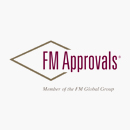Global Certification
No.1 of certification consulting performance in Korea, the consulting institution registered at the MSS
No.1 of certification consulting performance in Korea, the consulting institution registered at the MSS


| Item | Details | Remarks |
|---|---|---|
| Product | Rubber foam insulation | |
| Applicable standard | Approval Standard for Pipe and Duct Insulation Class Number 4924 |
|
| Testing and certification fee |
KRW 82,000,000 (USD 75,000) | KRW 1/USD = KRW 1,100 |
| Technical guidance fee | KRW 18,000,000 | |
| Approval period | D+8 months | *D=Send samples and materials |
| Total | KRW 100,000,000 |
Ministry of SMEs and Startups subsidy: KRW 43.2 million (over KRW 3 billion in sales) or KRW 50 million (up to KRW 3 billion won in sales)